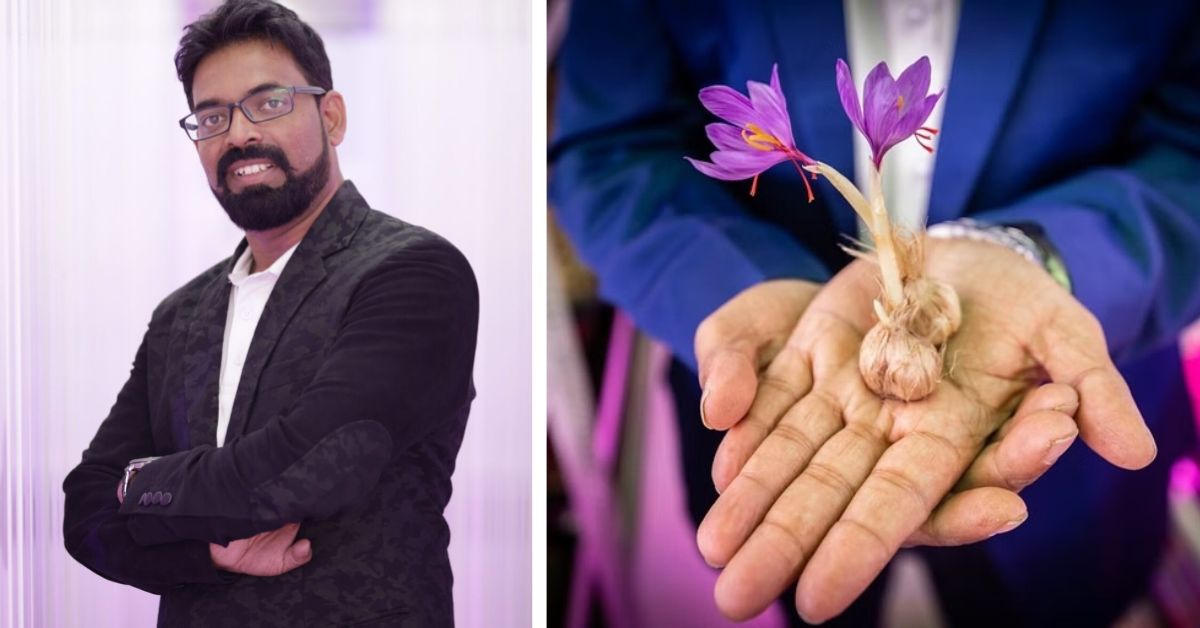Watch How Pune Engineer Uses Hydroponics to Grow Saffron in Shipping Containers
Engineer Shailesh Modak quit his job to begin growing saffron in shipping containers using hydroponics. Watch this video to see how it earns him lakhs.

Software engineer Shailesh Modak from Pune came up with a unique business idea that couples hydroponics and a love for nature.
Though well-settled in the corporate world, Shailesh was intent on doing something that enabled him to follow his passion for agriculture. However, he knew of the uncertainties that came up in the field.
“The biggest problem with agriculture is that there is too much reliance on climate and weather. With drastic changes in climate due to global warming the crops would fail,” he notes. This was when Shailesh stumbled upon the idea of hydroponics through research.
He decided to focus on a unique crop — saffron — that was at the time only limited to certain belts in India. Today, Shailesh’s venture which focuses on saffron grown in shipping containers earns him lakhs.
The containers are insulated and measure 8 by 40 sq ft, comprising all the systems that are needed for farming from seed to final harvest. What is amazing is that the amount Shailesh reaps from a 160 sq ft area of saffron is the same as what one could get from half an acre of land.
The sales too are good. While Shailesh was able to grow 875 grams in the first batch, he sold this at Rs 500 per gram. The venture clocks a revenue of Rs 5 lakh.
Watch how Shailesh is making this possible!
If you found our stories insightful, informative, or even just enjoyable, we invite you to consider making a voluntary payment to support the work we do at The Better India. Your contribution helps us continue producing quality content that educates, inspires, and drives positive change.
Choose one of the payment options below for your contribution-
By paying for the stories you value, you directly contribute to sustaining our efforts focused on making a difference in the world. Together, let's ensure that impactful stories continue to be told and shared, enriching lives and communities alike.
Thank you for your support. Here are some frequently asked questions you might find helpful to know why you are contributing?














